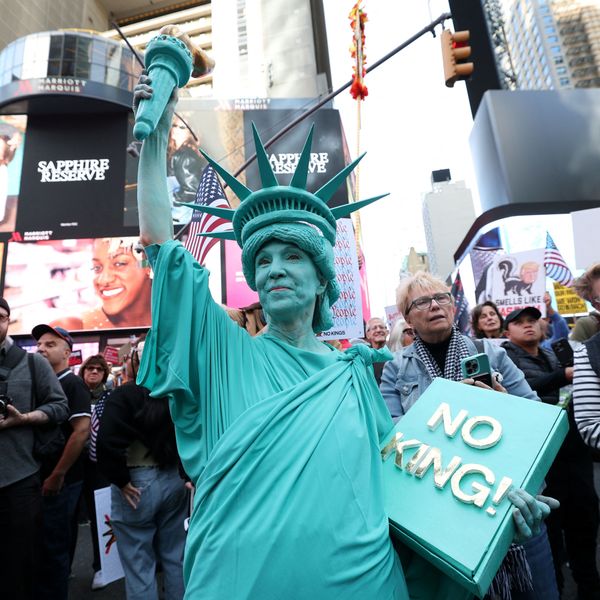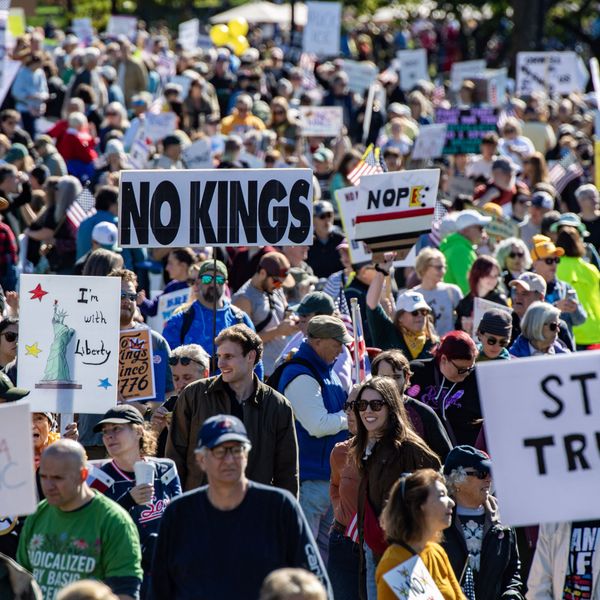Barack Obama's stirring victory in Iowa was also a good night for our democracy. The turnout broke records and young people - who were mobilized and organized - participated in unprecedented numbers. And now that Iowans have spoken - the first citizens in the nation to do so - here's the Democratic delegate count for the top three candidates (2,025 delegates are needed to secure the nomination):
Clinton - 169
Obama - 66
Edwards - 47
"Huh?" you say. "vanden Heuvel, you made a MAJOR typo."
In fact, those numbers are correct: the third-place finishing Sen. Hillary Clinton now has over twice as many delegates as Sen. Obama, and more than three times as many delegates as the second-place candidate, Sen. John Edwards. Why? Because the Democratic Party uses an antiquated and anti-democratic nominating system that includes 842 "super-delegates" - un-pledged party leaders not chosen by the voters, free to support the candidate of their choice, and who comprise more than forty percent of the delegates needed to win the nomination. Many have already announced the candidate they will support.
In a clear attempt to protect the party establishment, this undemocratic infrastructure was created following George McGovern's landslide defeat in 1972. It was designed to prevent a nominee who was "out of sync with the rest of the party," Northeastern University political scientist William Mayer told MSNBC. Democratic National Committee member Elaine Kamarck called it a "sort of safety valve."
In 1988, Reverend Jesse Jackson challenged the notion that these appointed delegates be permitted to vote for the candidate of their choosing rather than the winner of the state's caucus or primary. He was right to do so. Twenty years later, when the word "change" is being bandied about, isn't it time for the Democratic Party to give real meaning to the word? Strengthen our democracy by reforming the super-delegate system so that the people, not the party establishment, choose their candidate.
Katrina vanden Heuvel is editor of The Nation.
(c) 2008 The Nation

